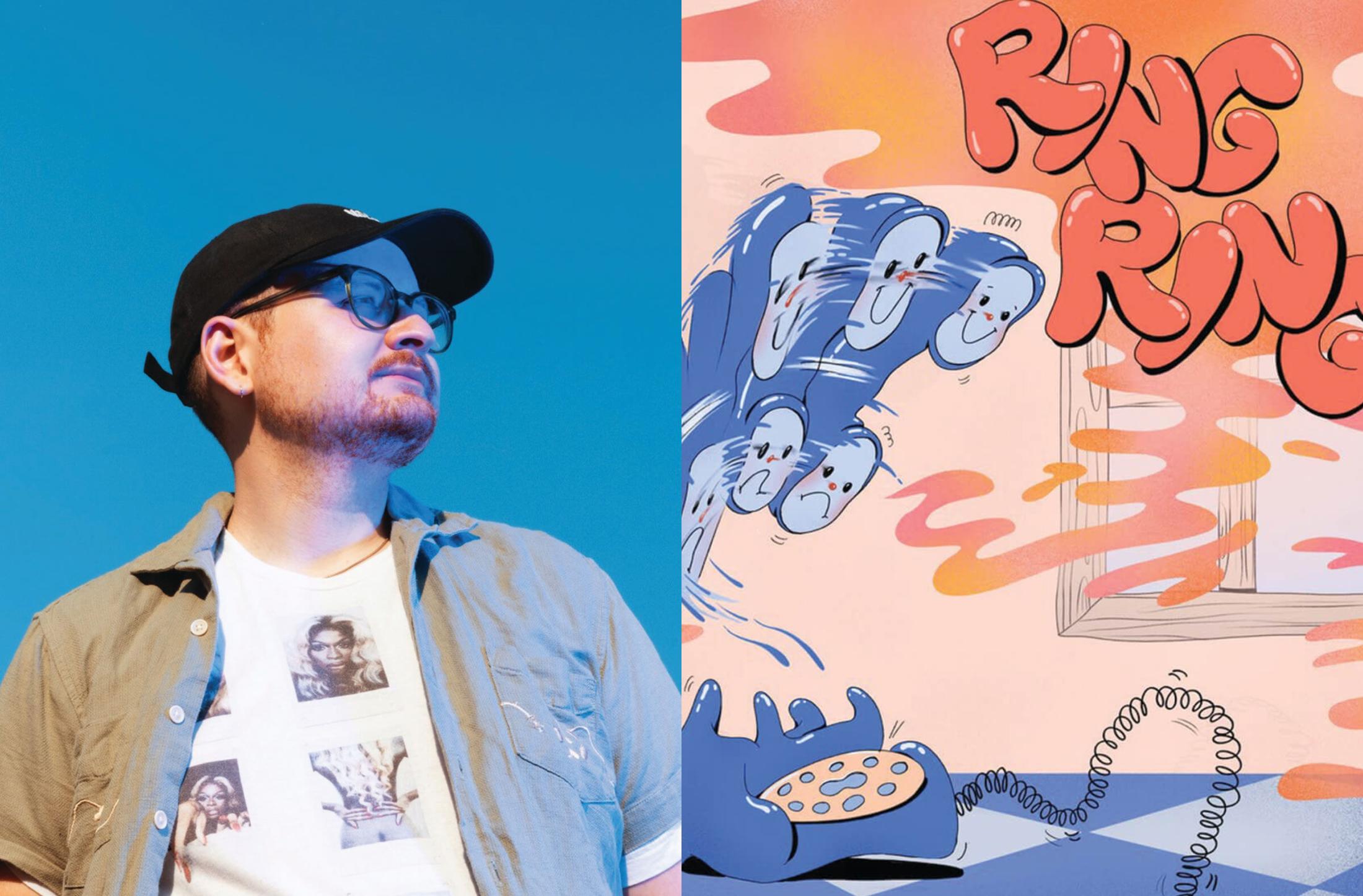Arts & Culture
Micah E. Wood’s ‘Ring Ring’ Features Some of His Most Expansive Songwriting and Versatile Vocals Yet
After spending the better part of the last decade honing his sound, the 31-year-old singer-songwriter has officially hit his stride.

On his latest album, Ring Ring, local indie darling Micah E. Wood has officially hit his stride. Not that we didn’t love his other records, like 2019’s self-titled LP or 2020’s much-needed You Are Here. But after spending the better part of the last decade honing his sound, the 31-year-old singer-songwriter has really found his voice.
Here, he emerges with six new nostalgia-tinged songs that feel like the fruits of his labors, evolving from the lovelorn lyrics and digi-pop melodies of his early work into some of his most expansive songwriting and versatile vocals yet—including his first true rock song, which draws inspiration from the likes of Lou Reed and Ramones.
A prolific collaborator and charismatic performer, Wood has become a staple of the local music scene. He is also one of its most steadfast champions, working across genres and celebrating its myriad artists through his colorful photography work. Members of Super City, Ed Schrader’s Music Beat, and Outcalls appear on this record, among others. Best of all, in true Micah fashion, Ring Ring is a lot of fun. He encourages popping in your earbuds and listening to it on a walk about the city.
You’ve said that, after years of writing love songs, your self-titled album was sort of your coming-of-age record, and You Are Here was your dance record. In the Micah E. Wood catalogue, where would you put Ring Ring?
It’s funny, because I was finishing the self-titled album right around the time I met my now-fiancée. It was very much about me finally learning to love myself. Literally the week after I finished recording that record, I wrote the first song for You Are Here, which was “Something More.” I wanted someone to view me as more than just a person, but all of my intricacies, seeing me for who I am. I have that now. Ring Ring comes from a place of comfortability. There’s a lot of everyday life. There’s a lot of reflection. The first song, “Adderall,” is what I hope is the finale to songs like “Without You,” from 2017. It’s like the closing of this chapter of heartache as I move into a world of loving myself more— and being loved.
You’ve also made some sonic shifts. What have you been listening to?
I’ve been pulling a lot of inspiration from Jewish rocker icons. Lou Reed. Sparks. I didn’t grow up listening to, for lack of better words, old white rockers. My mom raised us on a lot of Prince and Earth, Wind & Fire. It was cool finding these artists later on and falling into the way they write. My lyrics have been very matter-of-fact and autobiographical. This record was a lot more like poetry—really writing it out, assessing it to the song, then retooling every line that doesn’t hit 100-percent perfect, which I heard is a method that Kendrick Lamar uses. He writes like three or four potential songs for every song.
Which is your favorite from this album right now?
Maybe “See You Later,” which is my first rock song.
I hear some Ramones in there.
Another Jewish icon. It’s funny, I sent that song to [D.C. artist] Bartees Strange a few months back, like, “Man, I hope you like this, it’s the hardest song I ever wrote,” and he wrote back like, “Bro, this is hard, you know what it reminds me of? Elton John,” and I was like, “F**k!” Like, I love Elton John, but . . . [laughs]. I’ve actually been getting a lot of Elton John comparisons recently, and I love that. It might be my stage presence, and maybe the drama. I’ve just accepted that my music has a dramatic sense to it. That’s just how I write. And I love that rock lets you be so dramatic.
Has this influenced your singing as well?
For years, I sang so deep because it was the only thing I could control. But on my last record, I realized the natural place of my voice was actually more of a [tenor or baritone]. I wrote all the melodies on synth and practiced them over and over again so I could be more melodic. So I went from having no knowledge to bettering my voice to then practicing to get my voice to be able to do more to this record, where I could be the most free. I feel the most at ease with my voice than I ever have. It’s exciting.